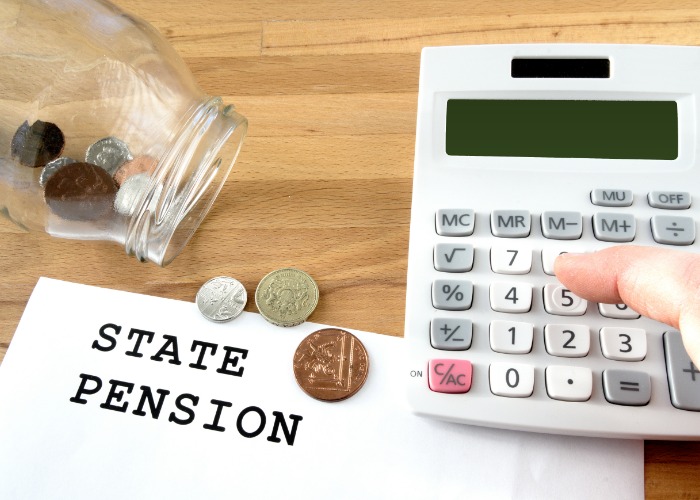State Pension: 5 mistakes that impact how much you get paid

Watch out for these State Pension blunders which could cost you thousands of pounds.
The State Pension can be a minefield, so make sure you don’t make any of these costly mistakes.
1. Not claiming Child Benefit
An unintended quirk of the Child Benefit rules means tens of thousands of new mothers could end up losing out on their State Pension.
The introduction of Child Benefit means testing in January 2013 led to more mothers in higher-income households opting out of claiming to avoid a tax charge.
The problem is that those who choose not to claim Child Benefit and don’t correctly fill out a form to opt out of the scheme miss out on National Insurance Credits, which new mothers need for the time they take out of work to fill the gaps in their record.
Those who reached State Pension age on or after 6 April, 2016 needed to have between 10 and 35 ‘qualifying years’ of National Insurance Contributions or credits in order to receive the new State Pension.
This flaw in the system means new mothers will miss out on a portion of their State Pension entitlement at a rate of £244 a year for each year that is uncredited.
It could amount to a loss of around £5,000 in State Pension over a typical retirement, according to analysis from insurer Royal London last year.
2. Claiming when you don’t need it
If you’re still working or have a separate pension you can live off, it pays to delay claiming your State Pension benefit when you reach State Pension age.
By delaying when you claim your State Pension entitlement, you can boost how much you get – and this trick works even if you have already started claiming it!
If you’re entitled to the basic State Pension, you can get 1% extra for every five weeks you delay or stop claiming it – amounting to a 10.4% boost for every full year you put it off.
If you’re eligible for the new State Pension, you will get 1% extra for every nine weeks you delay or stop taking it, which equates to a 5.8% boost for every full year you leave it untouched.
Find out all about this trick to boost your State Pension in our guide: Deferring your State Pension: how much can you get and is it worth it?
3. Not checking your National Insurance record
The amount of State Pension you receive relies on how many years of National Insurance contributions or National Insurance credits you have built up.
Those entitled to the old Basic State Pension needed 30 ‘qualifying years’ of NICs to get the full benefit, but there is no minimum, so even those with just a few years receive something.
Those who reached the State Pension age after 6 April 2016 receive the new State Pension instead.
In order to receive this amount, you will need 35 ‘qualifying years’ of NICs. You’ll need at least 10 years to get paid any new State Pension at all.
You should check your NIC record to make sure you have enough qualifying years to get access to the State Pension benefit and for errors that will or are preventing you from receiving the right amount.
You may be able to top up your National Insurance contributions or get in contact with the DWP to find out why you are missing years.
A couple of years ago, it was discovered that tens of thousands of workers – mostly women – could be paid less State Pension because of poor Government record keeping.
You can take a look at your National Insurance record online using the Government’s ‘Check your State Pension’ website to ensure the Department for Work and Pensions has the right information about your entitlement and spot any gaps.
If you have passed State Pension age, call up the Department for Work and Pensions on 0800 731 7898 or send a letter to PO Box 50101, London, SW1P 2WU.
4. Thinking it will be enough
The State Pension alone is not normally enough to live on – head this way to see what it's currently worth depending on which pension you'll get.
You should start planning for your retirement by taking a look at how much you are on course to receive from the State Pension.
Take a look at: How to get a State Pension forecast.
Once you know this, you can take action to maximise and/or supplement the money through top-ups, a personal pension or a workplace pension.
5. Not claiming Pension Credit
Pension Credit is a benefit for retirees on low incomes. There are two parts to it: Guarantee Credit and Savings Credit.
If you live alone, it can top up your income to £227 a week or up to £346 if you're a couple.
Savings Credit is an extra payment for people who saved some money towards their retirement, for example, via a company pension. You can receive up to £17.30 a week if you're single or up to £19.36 if you're a couple.
You need to apply for Pension Credit. You can call 0800 99 1234 (textphone: 0800 169 0133) Monday to Friday between 8am and 6pm.
You can apply up to four months before you reach State Pension age.
Use the Government’s Pension Credit calculator to work out how much you could get.
If you want to learn more about retirement planning, read our comprehensive guide to pensions.
Don't miss these:
MPs: State Pension triple lock 'should be scrapped’
Find out how much you need to save for retirement
Secondary annuity market scrapped: what it means for pensioners
Comments
Be the first to comment
Do you want to comment on this article? You need to be signed in for this feature
